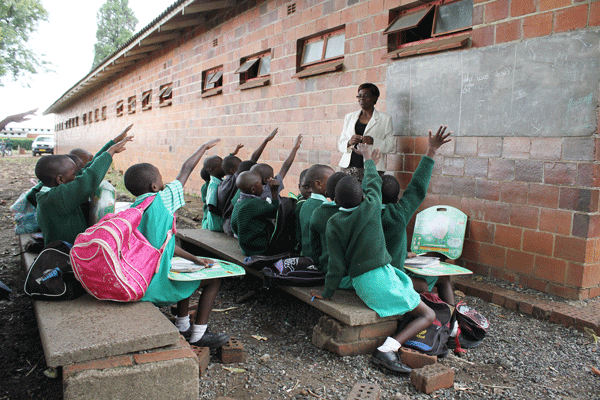
IN a response to The socio-economic dangers of sending children to school at too young an age, as an early childhood development (ECD) practitioner, I want to provide an informed perspective on the benefits of investing in early education for our children.
International evidence attests to the life-long benefits of appropriate early childhood interventions. The evidence is clear: it is in the early years of human life that the fundamentals of a child’s emotional, intellectual, social and physical development are laid, establishing the building blocks for a pathway into the future.
Without good parenting, health, nutrition and education, developmental delays can occur that are difficult to correct later in life.
We have to know that ECD takes place in a range of settings: homes, schools, health facilities, early learning play groups and community-based programmes. It includes activities such as childcare, nutrition support, parenting and early stimulation interventions.
Additionally, these services can be provided through private, public and non-governmental agencies. Hence, you see the sprouting of ECD centres at almost every corner in the country.
The brain develops most rapidly in the first few years of a child’s life.
The ongoing interchange between genes and different environments – within which children are born, grow, learn and live – shapes the developing brain.
During these critical years, the foundation is laid for a child’s physical and mental health, affecting everything from longevity to the lifelong capacity to learn, from the ability to adapt to change to the capacity for resilience against adverse circumstances.
- Chamisa under fire over US$120K donation
- Mavhunga puts DeMbare into Chibuku quarterfinals
- Pension funds bet on Cabora Bassa oilfields
- Councils defy govt fire tender directive
Keep Reading
Therefore, it is important that the continuum of ECD begins at conception and goes through to the primary school stage. Within this continuum, there are four stages of development, each of which presents specific needs. Interventions at appropriate stages in early development can play a protective role and ensure the wellbeing of young children in the long term.
That the government has developed a “new” policy is not a true fact. This has already been there dating back to 1980. But, off course, with new developments, there has been need to modify our existing practices in line with global trends.
In fact, statistics gleaned from the ministry show that 95-97% of our public schools have designated facilities for ECD. Functionality of these facilities is then another matter for debate.
I absolutely see no commercial basis for the ministry to push for ECD at all public schools.
Entrepreneurs have been quick to commercialise this, possibly because they now understand the rationale behind ECD.
Would it not be good if the same good standards and resources such as play centres, information communication technology equipment for these children are found in our public institutions? We have to have public/private partnerships that support the public ECD centres. The more equipped and resourced these centres are, the greater opportunity for our nation’s children to benefit from great public school based ECD facilities.
I am by no means a spokesperson for the ministry, but I am trying to assist the writer to gain an understanding on why investment in ECD is critical for our nation. Patrick Makokoro Nhaka Foundation founder











